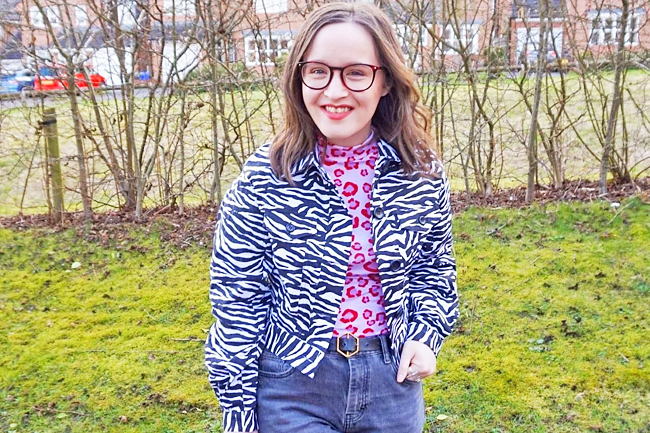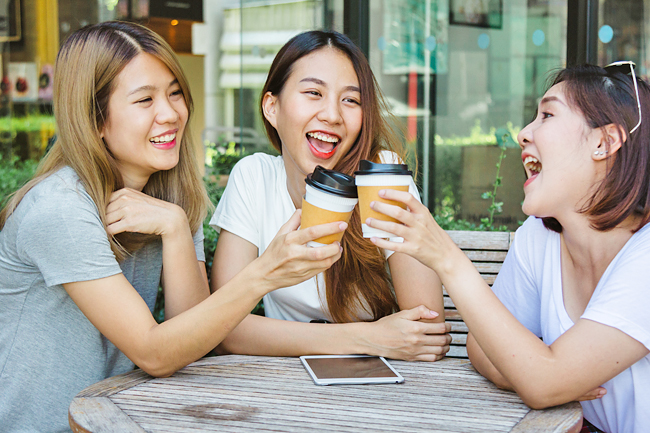THE WASHINGTON POST – Holly Cooke wasn’t a fan of weekends. Whenever Friday rolled around, it was a reminder that she had no one to spend her spare time with.
“I was super isolated,” said Cooke, who relocated from Stoke-on-Trent – a city in central England – to London in 2018, when she was 22. “I moved here knowing absolutely no one.”
She had high hopes of going to restaurants and the theatre, but she didn’t want to do those activities alone.
“I was craving community and people; people who wanted to hang out and have fun,” said Cooke, now 26. She began to understand why London is sometimes considered a particularly lonely place to live. Finding friends was hard.
She grew so desperate for company, she said, she eventually found herself Googling: “How to make friends in London.”
The search proved mostly futile, though she did check out some friend dating app spinoffs, like “Bumble BFF”. There, she found a few other women who lived in London and were also lonely. She was seeking women friends, specifically, because “we really need to look out for each other”, she said.

PHOTOS: LONDON LONELY GIRLS CLUB PHOTO/ THE WASHINGTON POST


Cooke spontaneously decided to create a Facebook group called The London Lonely Girls Club, and invited the people she connected with on the apps to join. She then asked everyone to meet for brunch.
“It was so vulnerable,” she said, adding that she asked a friend from out of town to come in for the brunch, in case no one else showed up. “Saying that you’re lonely and you don’t have people around, admitting to that was really scary.”
Cooke was pleasantly surprised when five women showed up and they all got along well. The success of the first meetup proved to Cooke that she was not alone in her loneliness, and that she could help others in the same situation.
She decided to start planning meetups every few weeks, and word slowly spread about the Facebook group. Now, five years later, the London Lonely Girls Club has more than 35,000 members. Cooke, with the help of some volunteers, plans between four to seven events per month for women and nonbinary people to congregate and connect. Members range from age 18 to 70, and the average age is around 28.
The group has attracted a wide range of people – including those who have lived in London all their lives, as well as people from other cities and countries. “It was very clear that people were looking for what we provided,” said Cooke, who works in marketing.
Amie Innes is originally from Edinburgh and joined the group when she moved to London about a year ago for a job in the fashion industry. She had heard about the London Lonely Girls Club through a friend.
Although she considers herself a “people person”, Innes, 27, said, “London is such a big city. It’s really hard to make friends.”
She started attending events and even volunteered to help host some with Cooke.
“I’ve met so many amazing friends from the group,” Innes said.
The London Lonely Girls Club organises various types of gatherings, including park picnics, art lessons, jewellery workshops, dinners and puppy yoga. For some events, attendees are charged a small fee of about USD3 to cover deposits and other charges associated with securing a venue.
“We want to be as inclusive as we can be,” said Cooke, adding that the group also has a community forum for members to chat and plan their own meetups based on common interests.
Cooke said she lost count of how many women have made enduring friendships through her group. She’s seen members go on vacations together and also become roommates.
“It’s beautiful and it’s rewarding, and it’s the reason I’ve carried on,” she said. “We can’t stop now. As long as there is a need, we will be here.”
Similar groups exist in the United States – where loneliness is also prevalent and was stoked by the pandemic. For instance, Marissa Meizz started the “No More Lonely Friends”, Facebook group in 2021, and more than 3,000 people have since joined.
Meizz, 25, who lives in New York City, created the group after a hurtful TikTok video went viral, in which a man said he overheard a group of friends rescheduling a birthday party so a woman named Marissa would be out of town and unable to attend. Meizz discovered that the video was referring to her.
“It came to my attention because it was my name, and it was in New York,” she said, adding that she reached out to the person who created the video, and sent him a photo of her friends. He confirmed it was them.
Meizz, a wardrobe stylist for television and film, had just moved to New York from Los Angeles, and was still getting settled. While she was deeply disturbed by what her friends did, “I felt like I didn’t have time to process,” she said.
That’s because Meizz revealed her identity on TikTok, and she swiftly received a torrent of support from strangers, letting her know that they wanted to be her friend.
“Why don’t we all meet up in one place?” she responded to them.
More than 200 people gathered in Central Park to meet Meizz two weeks after the video was posted, marking the beginning of No More Lonely Friends. “It just kept going from there,” said Meizz, explaining that anyone is welcome to join the free group, which has meetups at least once a month in New York and elsewhere.
No More Lonely Friends has hosted more than 50 events – which are often held in parks and other public spaces – across the country, including in Washington, DC. At least 100 people have attended each one.



